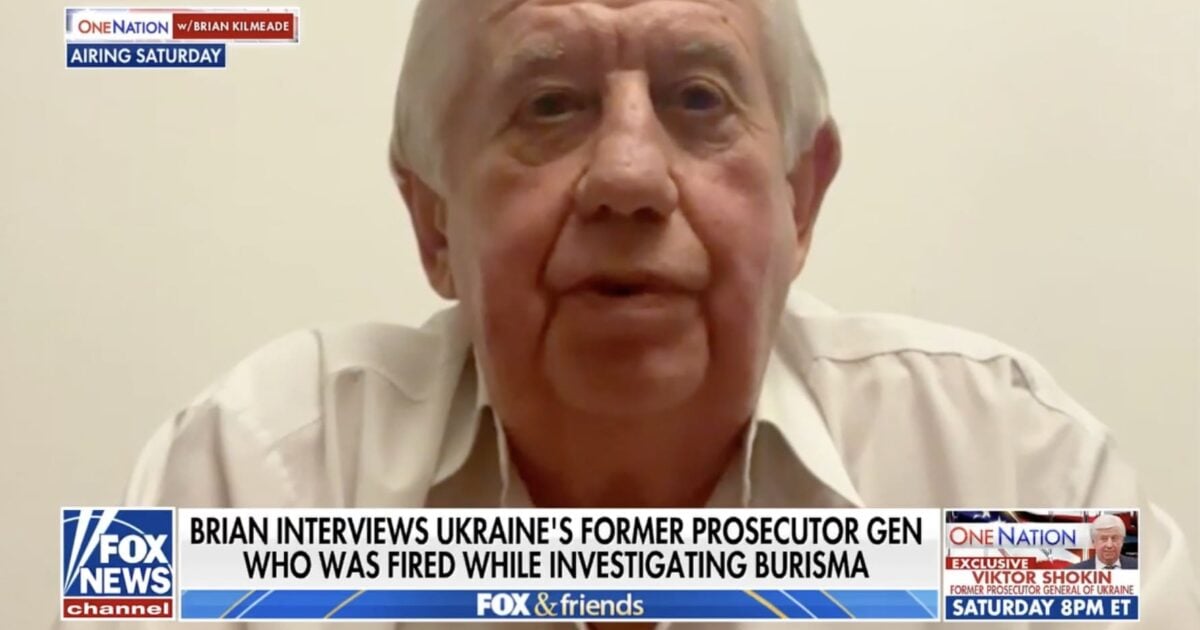The 2019 impeachment of President Donald Trump was the culmination of a years-long campaign to accomplish the top item on the Democrats’ policy agenda: the conviction of public enemy No. 1. But four years later, it’s clear Democrats had an ulterior motive.
House Democrats launched the impeachment inquiry immediately after the collapse of the grand conspiracy to frame the president as a Russian agent. After a more than two-year investigation run by Special Counsel Robert Mueller, neither Mueller nor his investigative task force, which was composed of mostly Democrats, found any evidence that the president’s 2016 campaign team, let alone the president himself, colluded with the Kremlin to compromise American elections
Trump then found himself at the center of another impeachment hoax related to Ukraine, which centered on a transcript of a phone call between President Trump and Ukrainian President Volodymyr Zelensky. An anonymous whistleblower tipped off the same corrupt actors who were behind the Russia-collusion hoax to allege the president was leveraging American military aid for deep-state investigations of political opponents. The whistleblower, whose identity was protected by the press and congressional Democrats, was identified as Eric Ciaramella by RealClearInvestigations.
Trump, the story went, withheld $400 million in military assistance to Ukraine in exchange for politically motivated investigations of Hunter Biden. The younger Biden had been leveraging the family name to conduct lucrative overseas ventures, including a stint on the board of a Ukrainian energy company, where he raked in excessive compensation despite no prior experience in the industry.
As soon as the story hit the airwaves, Trump publicly released the transcript in question. But the call showed no “quid pro quo,” the basis on which Democrats launched their impeachment for “high crimes and misdemeanors.” What Americans found instead was Trump demanding that the foreign leader of one of the world’s most notoriously corrupt countries rid the government of corruption and investigate Ukraine’s peddling of the Russia hoax that did irreparable harm to the United States
House Democrats launched the impeachment inquiry immediately after the collapse of the grand conspiracy to frame the president as a Russian agent. After a more than two-year investigation run by Special Counsel Robert Mueller, neither Mueller nor his investigative task force, which was composed of mostly Democrats, found any evidence that the president’s 2016 campaign team, let alone the president himself, colluded with the Kremlin to compromise American elections
Trump then found himself at the center of another impeachment hoax related to Ukraine, which centered on a transcript of a phone call between President Trump and Ukrainian President Volodymyr Zelensky. An anonymous whistleblower tipped off the same corrupt actors who were behind the Russia-collusion hoax to allege the president was leveraging American military aid for deep-state investigations of political opponents. The whistleblower, whose identity was protected by the press and congressional Democrats, was identified as Eric Ciaramella by RealClearInvestigations.
Trump, the story went, withheld $400 million in military assistance to Ukraine in exchange for politically motivated investigations of Hunter Biden. The younger Biden had been leveraging the family name to conduct lucrative overseas ventures, including a stint on the board of a Ukrainian energy company, where he raked in excessive compensation despite no prior experience in the industry.
As soon as the story hit the airwaves, Trump publicly released the transcript in question. But the call showed no “quid pro quo,” the basis on which Democrats launched their impeachment for “high crimes and misdemeanors.” What Americans found instead was Trump demanding that the foreign leader of one of the world’s most notoriously corrupt countries rid the government of corruption and investigate Ukraine’s peddling of the Russia hoax that did irreparable harm to the United States






